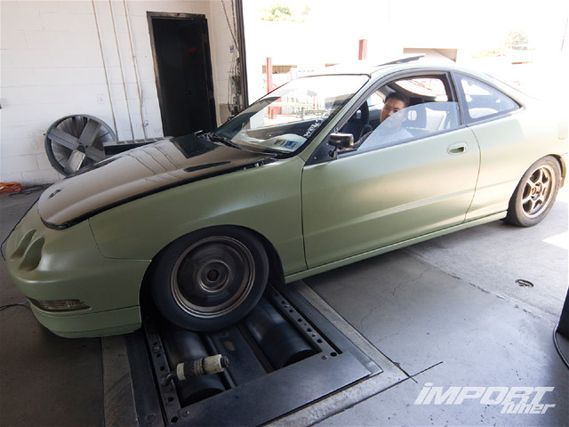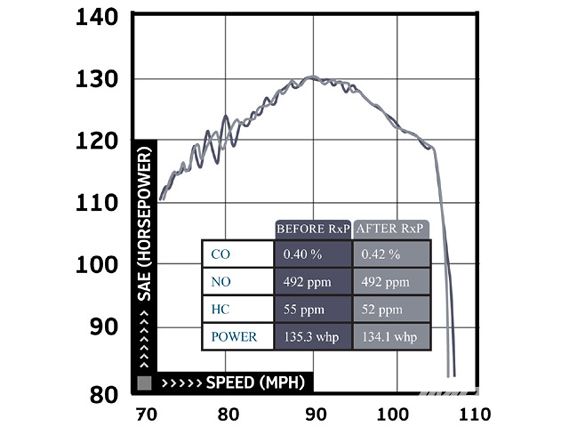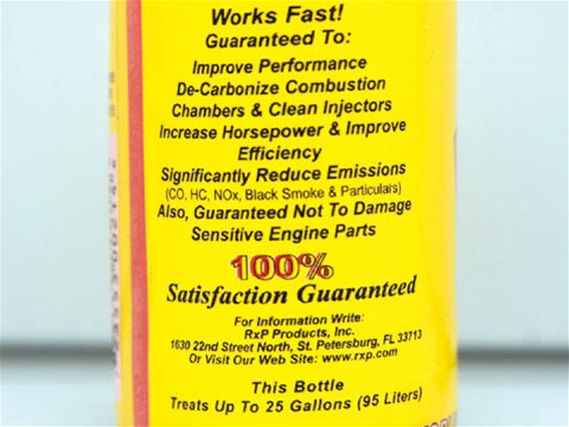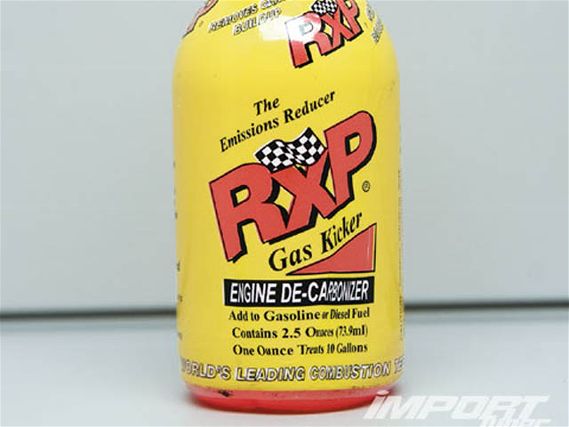 | Fuel Additive Myth - Fact Or Fiction
| Fuel Additive Myth - Fact Or Fiction
Possibly the biggest drawback to modifying a street car for performance is that with every increase in power, comes an increase in emissions. And with nearly every state or county in this great country of ours requiring your street car to meet mandatory maximum levels of emissions for road use, any product that promises to reduce emissions on test day is an attractive one to a tuner. Doubly so, if the product itself claims an additional boatload of advantages with its use.
 | Fuel Additive Myth - Fact Or Fiction
| Fuel Additive Myth - Fact Or Fiction
Can A Fuel Additive Decrease Emissions?
Browsing the "automotive supplement" section of our local auto parts store, we happened across RxP Products' Gas Kicker-a test-day additive that guarantees reduced emissions, increased fuel efficiency, and increased horsepower in addition to other benefits. With our Project DC2 in need of a Cali state smog certification-something we knew it might not earn on its own-we decided to put RxP's claims to the test.
 | Fuel Additive Myth - Fact Or Fiction
| Fuel Additive Myth - Fact Or Fiction
Our first stop was to MD Automotive in Westminster, CA, for some baseline power testing. After which, we headed across the street to the local smog test-only center for back-to-back smog testing, first without the RxP, and again with it added to our full tank of premium unleaded. Like most sanctioning government bodies, California sets limits for the amounts of Hydrocarbons (HC), and Nitrogen Oxides (NO) and Carbon Monoxide (CO) a road-legal car can emit, so that's what our emissions testing monitored. After averaging the numbers, we headded back to MD for some power testing with the RxP added.
 | Fuel Additive Myth - Fact Or Fiction
| Fuel Additive Myth - Fact Or Fiction
Fiction
The verdict:
While it does appear that RxP make a small improvement in our DC2's output of hydrocarbons, emissions tester Francisco Aguilar cautions that this could be a result of the engine temperatures increasing between tests, thus burning more HCs. Similarly, MD's Mark DiBella cautions, too, that the decrease in power we found is just too small to rule out as anything but standard testing variance. Does RxP fail? Signs point to yes. For best results, keep your car in good tune, with its emissions equipment intact, and add good 'ol fashioned denatured alcohol (15% by volume) to its fuel for a proven test-day bump in emissions-burning capability.
